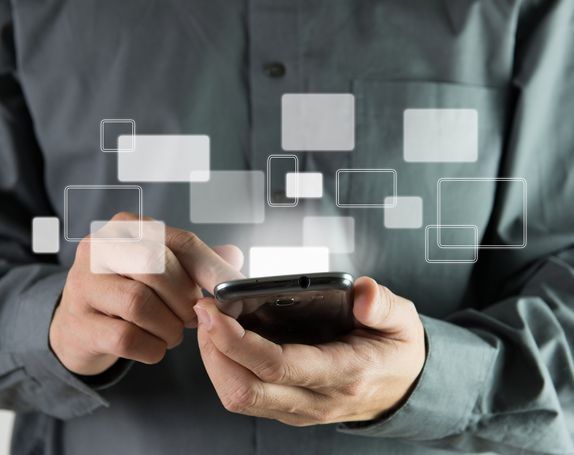Chances are you have a smart phone, but does it actually make you more productive? In other words, do you have more free time and less stress because you have a smart phone than you’d have with a standard “dumb” phone? If not, you should probably rethink how you use it.
Just because you can use a smart phone for something doesn’t mean it is productive. In fact, smart phones will give you the capability of doing things that are extremely unproductive. If you aren’t careful, you can end up worse off.
So what are smart phones good for? Handheld mobile devices are great for filling in small gaps of time. If you have a 3 minute wait at the post office, you probably aren’t going to drag your laptop out. Your phone can help you do something useful with that time. So what can you accomplish in 3 minutes? Here are some ideas:
- Scan your email for anything urgent.
- Delete unnecessary emails so you don’t have to deal with them back at your desk.
- Check your calendar to see what is coming up.
- Read a short article that you previously bookmarked. (Readabiliy and Instapaper let you mark things on your computer and then read them from your phone.)
- Scan your feed reader and mark unimportant items as read.
- Take a look at your voice mail and delete anything you don’t need to listen to. (Google Voice lets you read transcriptions of your emails and it generally works well enough to decide whether or not you need to listen to the message.)
If you notice, most of those tasks are simple things that clear things out of your way so you don’t have to deal with them when you get back to your desk. What you don’t want to do is get sucked into doing tasks on your phone that are more efficiently done on your computer. For example, typing isn’t something that is extremely efficient from a smart phone, so sending long emails shouldn’t be at the top of your list for productive smart phone use. I don’t even like sending text messages from my phone because it is so much slower than typing the text message at the computer (another use of Google Voice).
If you aren’t careful, you can get into situations where your phone sucks you into using it in ways that simply waste your time, but you feel productive because you are busy. You’ll feel a lot busier typing at 15 words per minute than you will at 90 words per minute, but you won’t be nearly as productive.
One of the other ways that mobile devices can help with productivity is by making you … well … mobile. When I’m watching my daughter play soccer on a Saturday morning, people can get a hold of me to ask me questions about projects. When I’m eating breakfast, it is easy for someone to get ahold of me on Google Talk to ask how they should proceed with something. Sometimes this is good, but if you aren’t careful, it can rob you of important moments in your life that you can never get back. You have to be careful not to let your phone become a distraction from the things that are really important. You also need to make sure that being instantly available doesn’t make it easy to establish bad habits in how you delegate and document. A cell phone shouldn’t be the alternative to giving clear instructions, delegating authority where it is needed, or letting others make decisions.
How do you use your smart phone? Have you found tasks where it works well or others where it seems like a waste of time?

Somehow I doubt you use Google Reader to monitor your feeds ;)
Well I did when I originally wrote this article. :) Good catch. I’ll take that out.
I used my smartphone by downloading a sermon by Derek Prince before I left home. Then I listened to it during the hour or so drive to a funeral visitation, to see my grandchildren at swimming lessons, and to purchase gasoline. The sermon was 59 minutes, so it worked out well.
The rule if thumb is: Less apps = higher productivity. No messenger apps, all notifications off – for some it may sound as the soldier way, but high productivity has its cost.